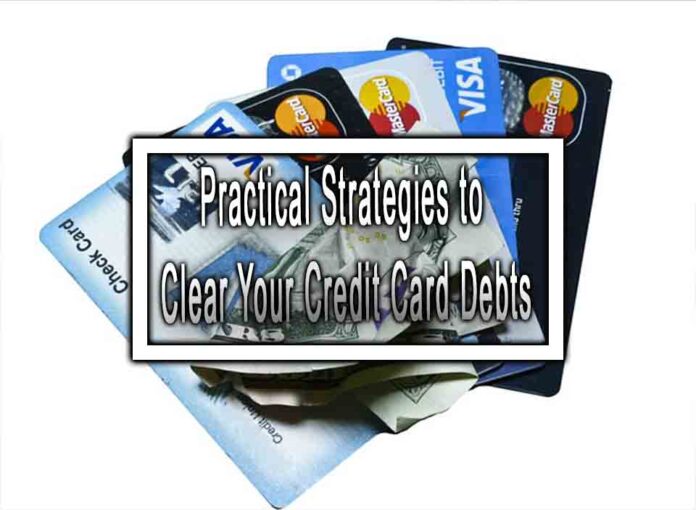Clearing credit card debt can be a challenging but achievable goal with the right strategies and commitment. Here are some practical strategies to help you clear your credit card debts:
1. Create a Budget
Start by assessing your income and expenses. Create a detailed budget that prioritizes debt repayment. Allocate a specific amount each month to pay off your credit card debt while still covering your essential expenses.
2. Pay More Than the Minimum
Whenever possible, pay more than the minimum monthly payment required. By paying more, you’ll reduce the principal balance faster and save on interest charges in the long run.
3. Prioritize High-Interest Debt
If you have multiple credit cards, focus on paying off the one with the highest interest rate first. Make minimum payments on other cards while allocating extra funds to the high-interest card. Once it’s paid off, move on to the next one.
4. Consider Balance Transfers
Look for credit card offers with low or 0% introductory APR on balance transfers. Transferring high-interest balances to a card with a lower rate can save you money on interest charges. However, be mindful of any balance transfer fees and the duration of the introductory period.
5. Debt Snowball or Avalanche Method
There are two popular approaches for prioritizing debt repayment. The debt snowball method involves paying off the smallest balance first while making minimum payments on other debts. The debt avalanche method prioritizes paying off debts with the highest interest rate first, regardless of the balance. Choose the approach that best suits your situation and motivates you to make progress.

6. Cut Expenses and Increase Income
Look for ways to reduce your expenses temporarily to free up more money for debt repayment. Cut back on discretionary spending, renegotiate bills, or find ways to earn additional income through a side job or freelancing.
7. Negotiate with Credit Card Companies
Reach out to your credit card issuers and inquire about potential options for lowering your interest rates or negotiating a repayment plan. Some creditors may be willing to work with you if you’re facing financial hardship.
8. Avoid New Credit Card Charges
To make progress in clearing your debts, refrain from using your credit cards for unnecessary purchases. Stick to your budget and focus on reducing your existing balances.
9. Seek Professional Help if Needed
If you’re struggling to manage your debts, consider speaking with a credit counseling agency or a financial advisor. They can provide guidance, help you create a debt management plan, and negotiate with creditors on your behalf.
Remember, clearing credit card debt requires discipline, patience, and consistency. Stay committed to your financial goals, track your progress, and celebrate each milestone along the way.










